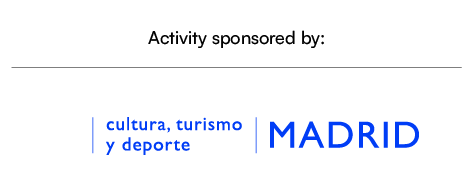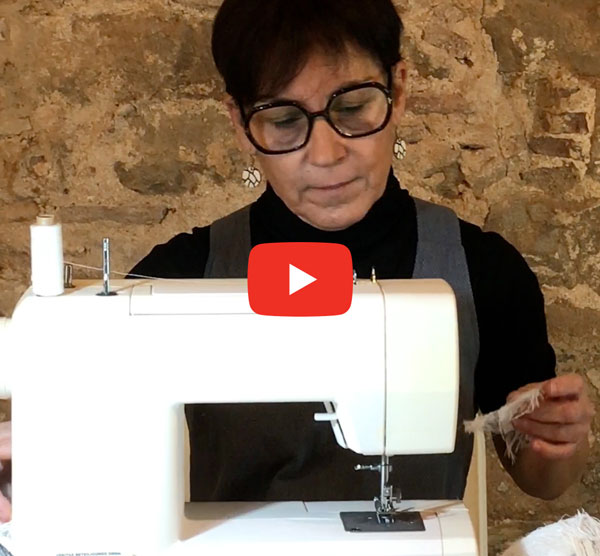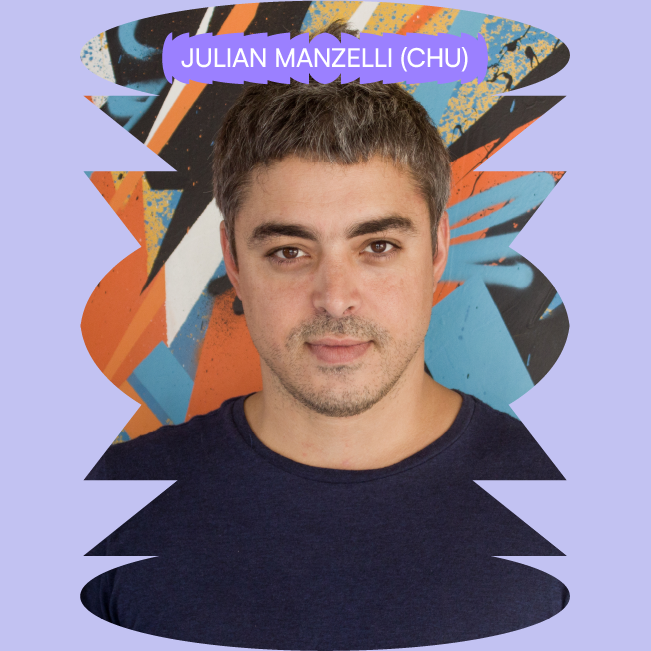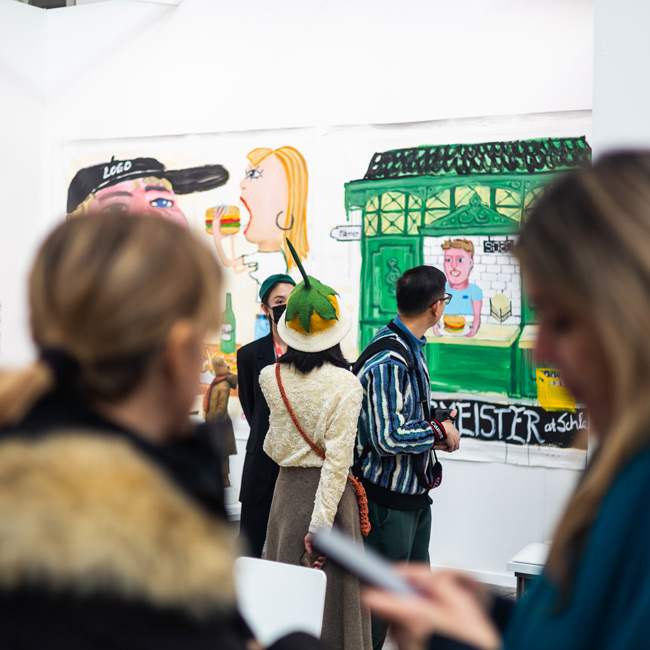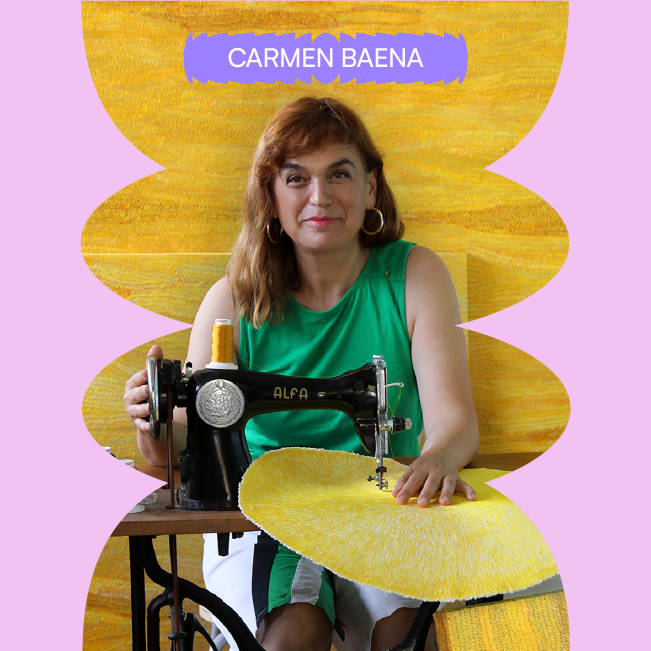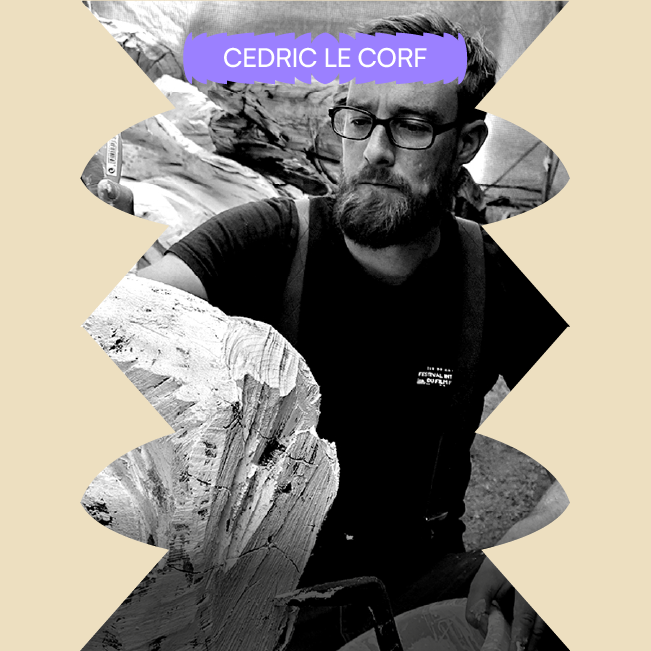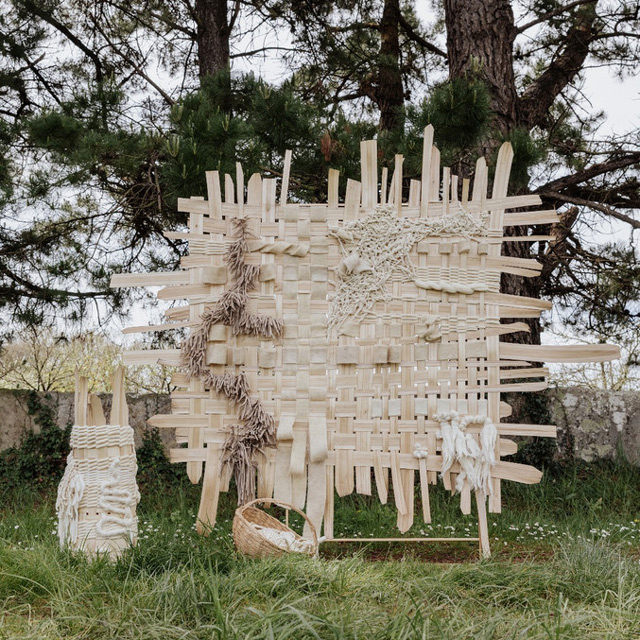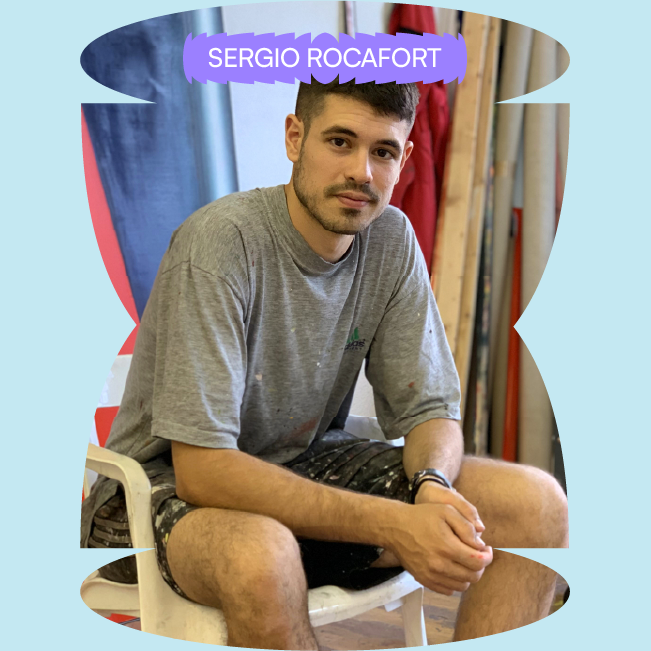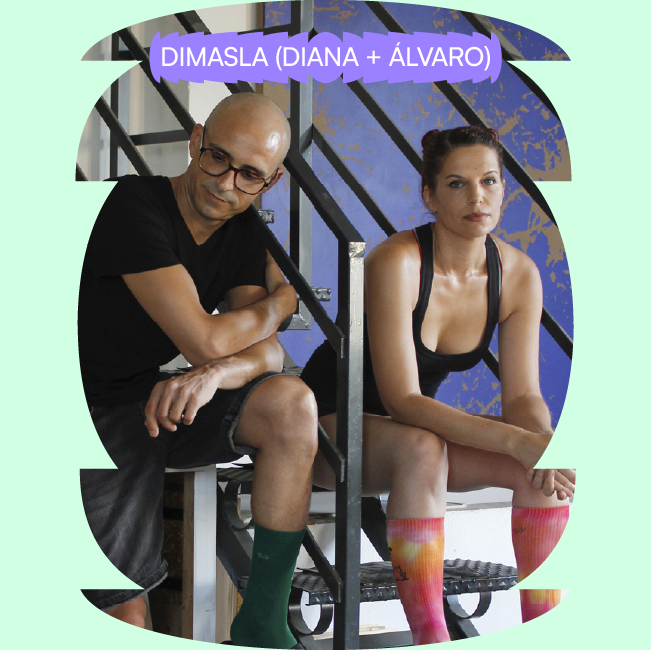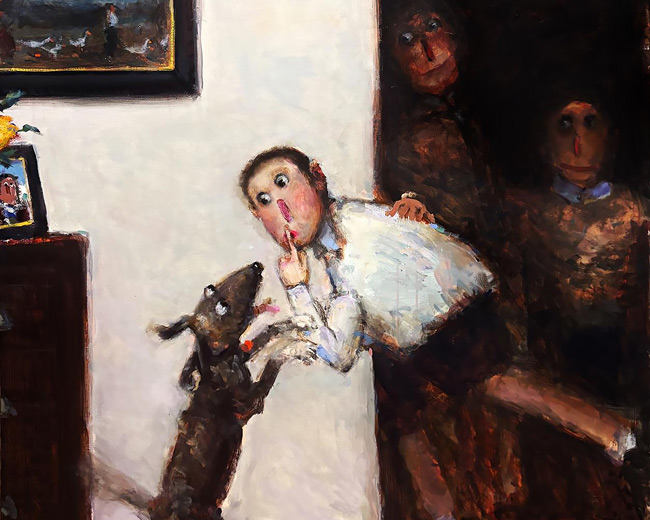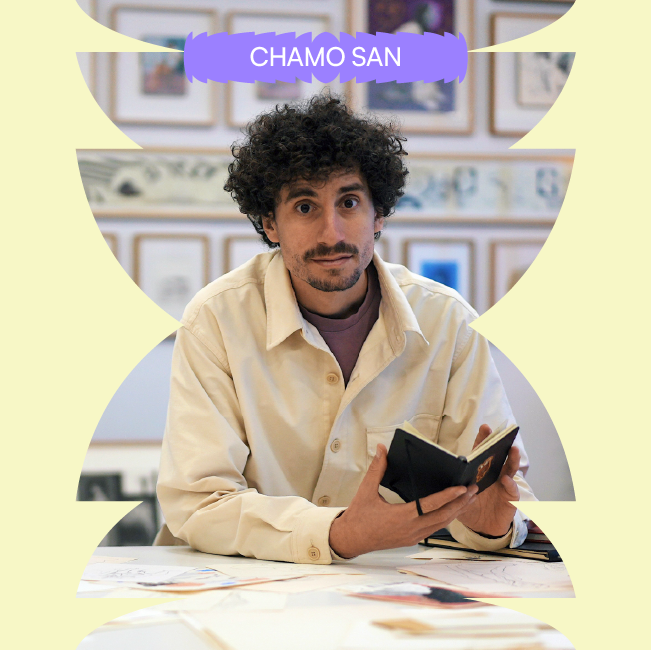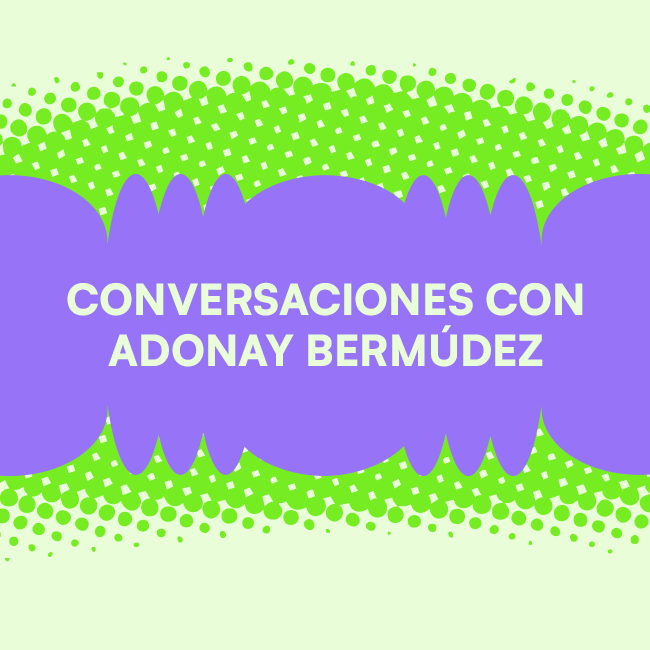FRANCESCA POZA: POETICIZING THE MATERIAL
Feb 25, 2024
art madrid
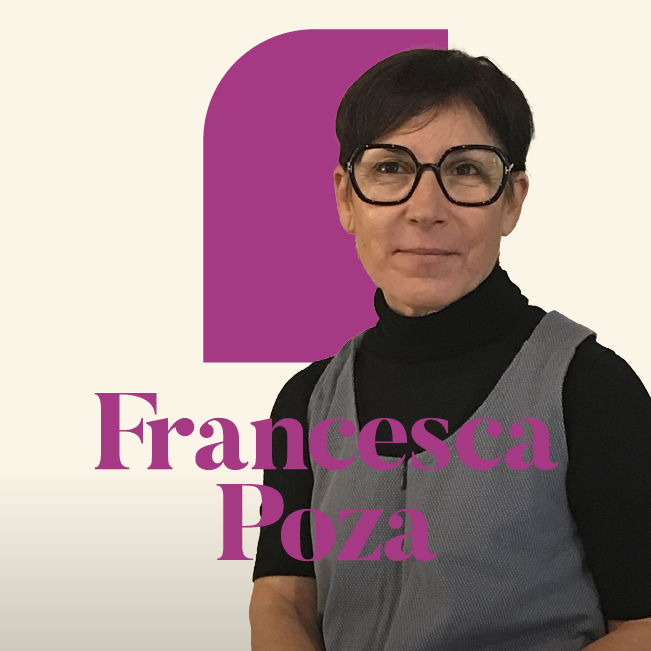
ARTE & PALABRA. CONVERSATIONS WITH CARLOS DEL AMOR
Thread is one of the most seemingly fragile materials in existence, yet a combination of threads can be indestructible. It is the triumph of fragility over brute force.
Among its many virtues, thread has its meaning, both real and imagined. It is a word that oozes poetry and makes us think of following a trail, sometimes infinite. Francesca Poza (Mataró, 1965) adds the written word to the many virtues of thread, giving her works a firmness that is always delicate but almost impossible to break. She weaves between letters and memory, pieces that seek to establish what has been lived, to leave a trace in a world that is increasingly ephemeral, more fleeting, more liquid, more elusive. In his work, poetry, literature and time intertwine in a harmonious way, resulting in creations of beautiful originality that are as subtle as they are powerful.
Perhaps Francesca has managed to give an answer to what Carmen Laforet wondered in "Nada", when she said: Who can understand the thousand threads that unite the souls of men and the reach of their words?
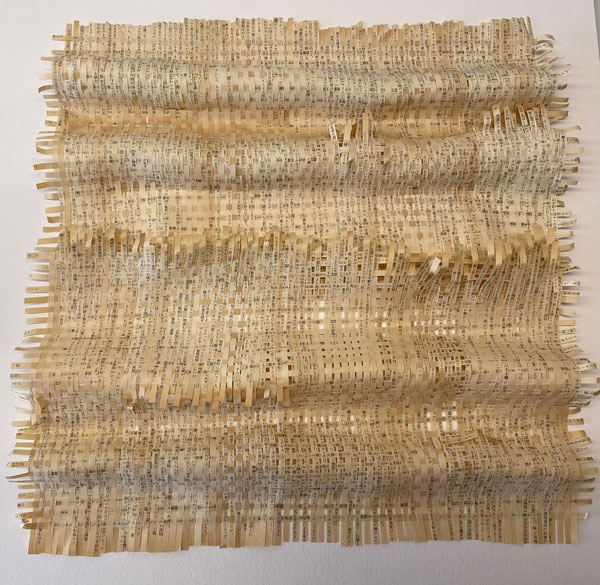
If you had to define yourself as an artist, in one sentence, how would you define yourself?
I could define myself as a multidisciplinary artist who poetizes matter.
The thread even predates the advent of writing, perhaps it's not exact, but I like to think that it began to "write" by spinning... Then came the written word, and in this encounter full of history and ancestors is your work. Spun words, sounds good, doesn't it?
Spun words sound good, the subtlety of the thread that organizes time, the connection, the continuity, the rhythm of literature without reading, because it is a very recurrent phrase in my work, that as the weft is made and unmade, the work and the poetry reappear.
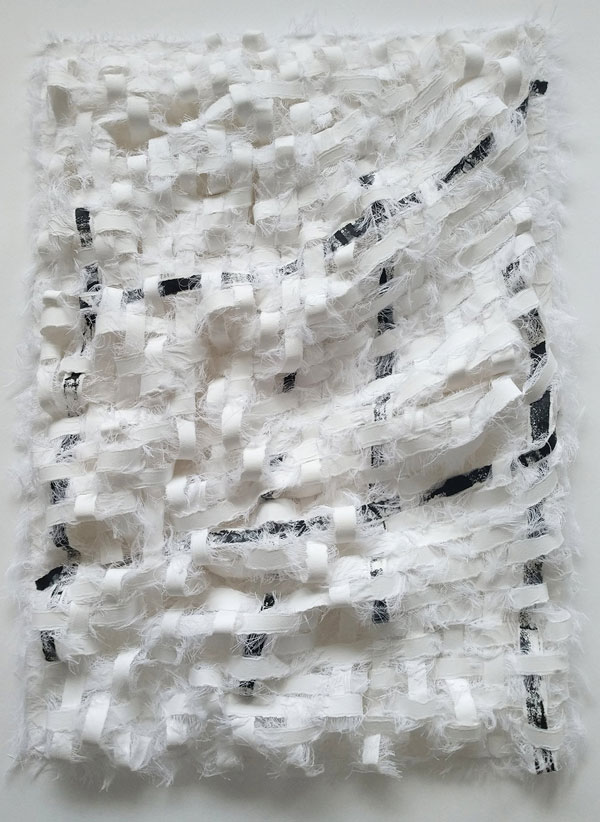
Why does everyone say that you are unclassifiable? Don't you think we live for labels? It's nice to be difficult to classify. Do you feel like a "freak"?
No, I don't feel like a freak. I like the fact that I am unclassifiable. It's difficult to define me as a sculptor, an engraver, or a weaver. I try to make poetry with the material I have, to make the fragile speak to us, to transport us; the paper as matter and the thread as symbol, to penetrate us.
When one stops in front of your work one has two sensations, well three, one of tranquility, the other two are paradoxical because the first impression is one of fragility, however, after a while you realize that these "threads" are strong because they are united and have made common cause. It's a bit like so many things in life, isn't it?
Yes, that's really what I'm looking for, to express peace and tranquility above all. We are going through very difficult times and I like to express the good that people have inside us.
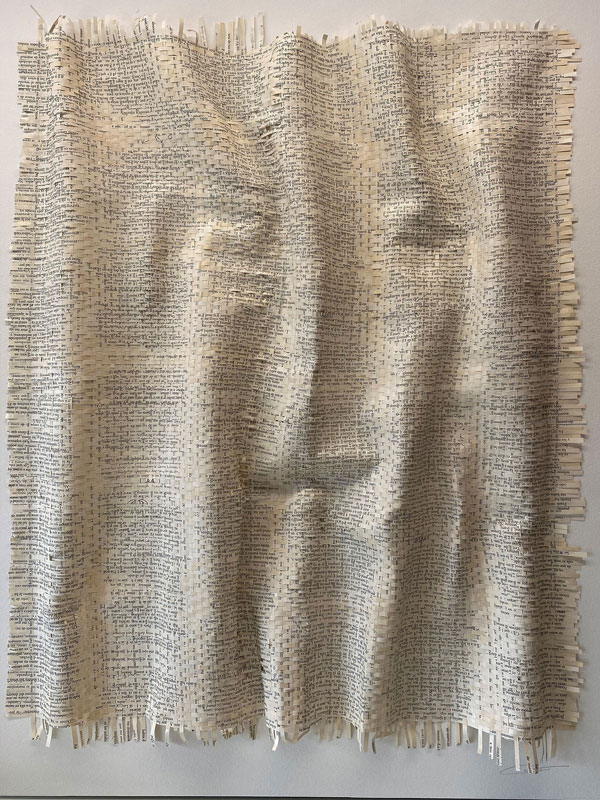
Memory is an intimate territory that sometimes betrays us, and forgetting is its main enemy. Is your work against forgetting?
Yes, the art of remembering and forgetting is a recurring theme in my work, because I had and still have the idea that we have to be something, that something has to remain in our memory. So I try to create a poetics that is embodied in different aspects of creativity. You could say that this essence of a series of needs, of leaving a permanent record, is because we don't want to be forgotten, and this is a way I have of expressing myself.
Your work is very poetic... What do you think is impossible to poeticise?
There is nothing impossible, nothing that cannot be poeticised. And yes, my work is poetic, why weave, what for? Poetry and weaving travel in the imagination and come together. Visual art, manual art, in short: poetry.
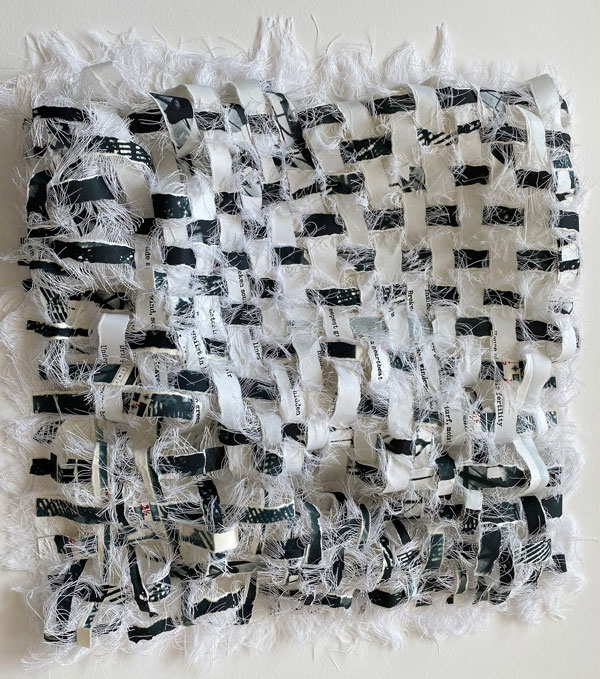
The thread leaves a trace, the words leave a trace... Your work leaves a trace. Where do you want it to go?
Words leave traces and I want my work to leave traces: the feelings and sensations of the viewer. That the work of art is not just for decoration, but something that when you wake up in the morning, you look at it and you feel different again, that it leaves you with something to feel.
Where do you think your work is going?
My work itself, I don't know where it's going, it leads the way, it guides me day after day. I would like to be able to continue weaving poems that travel in the imagination, to enter and leave through the multiple paths that the material and the feelings take me.

